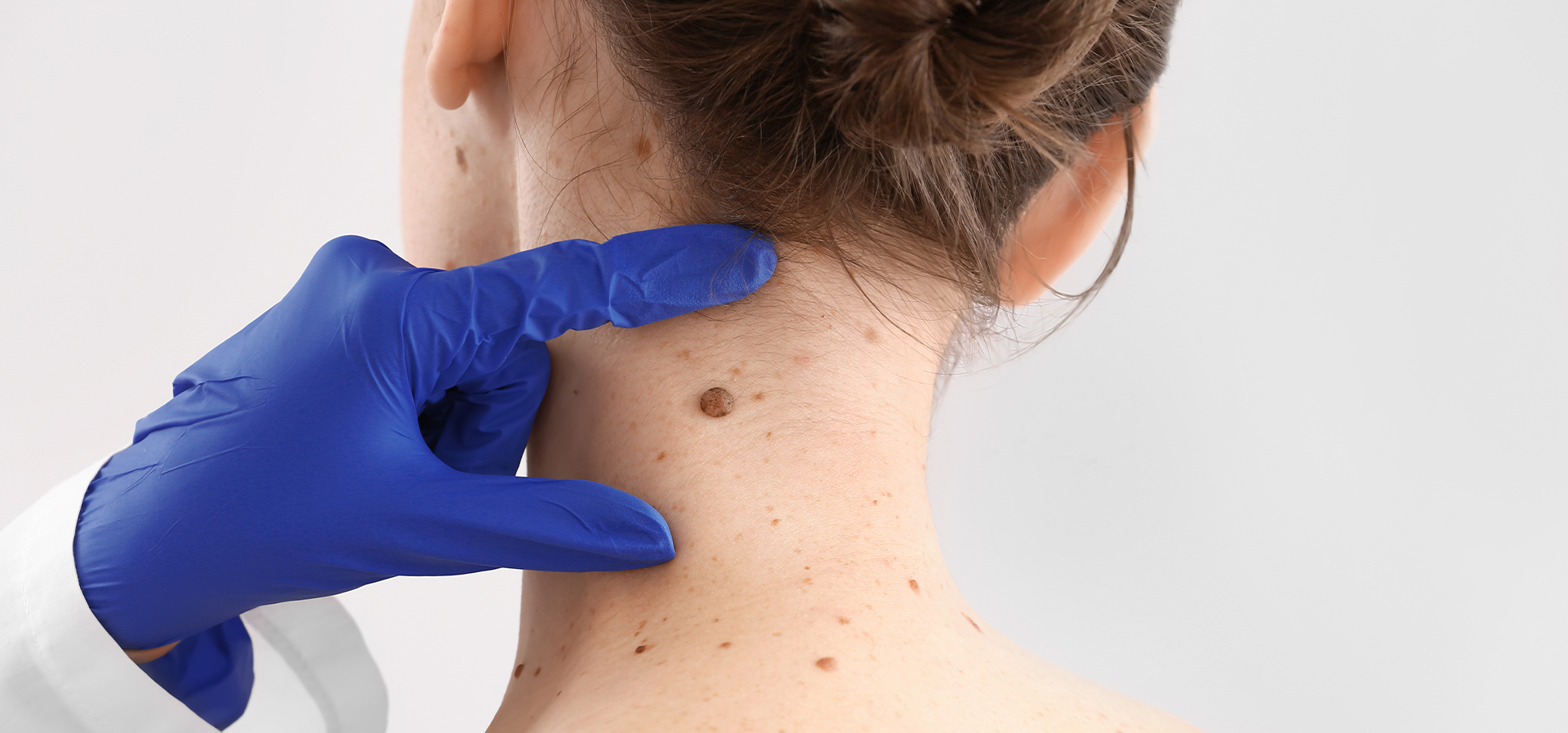Not all moles are cancerous, but why take the risk if a mole looks irregular? Mole removal is a straightforward procedure that can potentially save your life. Here at McLean & Potomac Dermatology, we offer this service to help save your skin and have you live free of unsightly skin marks. The type of excision procedure will depend on your unique case, so be sure to schedule a consultation and have one of our providers evaluate your skin before committing to a treatment.

What Is Mole Removal Like?
Mole removal can be performed for medical and/or cosmetic purposes. Most often, moles will be biopsied and sent to a pathologist to confirm that they are benign. Moles come in many different shapes and forms, and removal ranges from a simple shave to a more complex surgical excision. If you have any particularly bothersome or unsightly moles, it is best to consult with our providers.
What Are the Different Types of Moles?
Actinic Keratosis
AKs typically occur on body parts that are most often exposed to the sun. They usually appear as small crusty, scaly, or crumbly bumps or horns. Early on, they may come and go. Sometimes they are more easily detected by feel than by sight.
Basal Cell Carcinoma
One of the most common skin cancers is caused by long-term sun exposure. Frequently, two or more features are present in one tumor. In addition, basal cell carcinoma sometimes resembles non-cancerous skin conditions such as psoriasis or eczema.
Squamous Cell Carcinoma
Squamous cell carcinoma is the second most common skin cancer after basal cell carcinoma. Symptoms usually appear as thick, rough, scaly patches that may bleed easily. They often look like warts and sometimes appear as open sores. The skin around the site of these patches may exhibit signs of wrinkling, pigment changes, and loss of elasticity.
Melanoma
Melanoma is the most serious form of skin cancer. Even so, it is almost 100% curable if diagnosed and removed while it is still thin and limited to the outermost skin layer. Once the cancer advances and spreads to other parts of the body, it is hard to treat and can be deadly.
Can Moles Grow Back?
Mole regrowth is possible after removal, particularly if the excised mole was raised. That’s because some mole cells could remain on your skin and essentially regroup. For this reason, excisions typically remove some of the skin around the mole as well to prevent a recurrence.
Schedule Mole Removal in McLean, VA, or Potomac, MD
Mole removal can be performed safely and effectively here at McLean & Potomac Dermatology. These treatments can not only address aesthetic concerns but prevent medical complications as well. To get started, contact our team at McLean & Potomac Dermatology today and schedule a consultation.
You can reach us by using the Klara app on this site or by calling us at (703) 356-5111.


